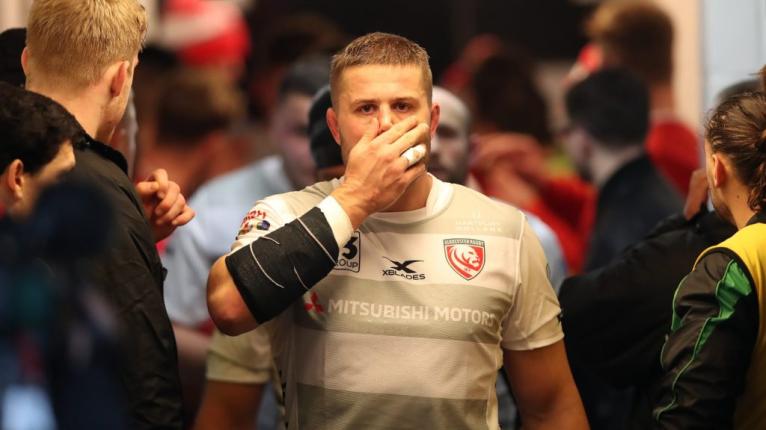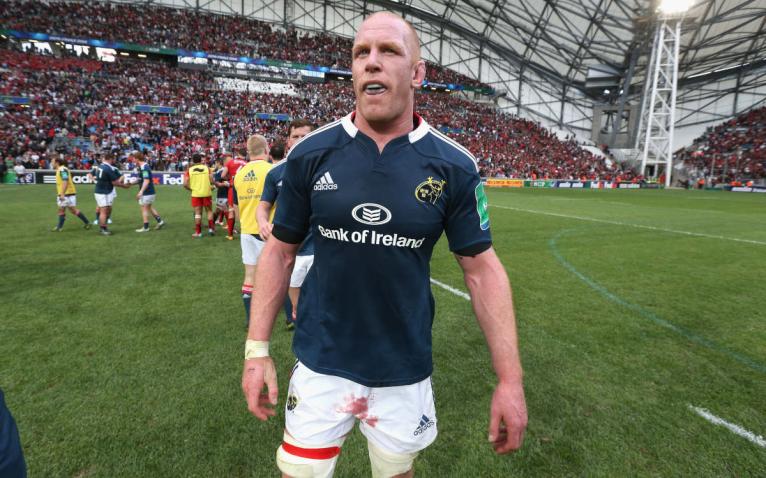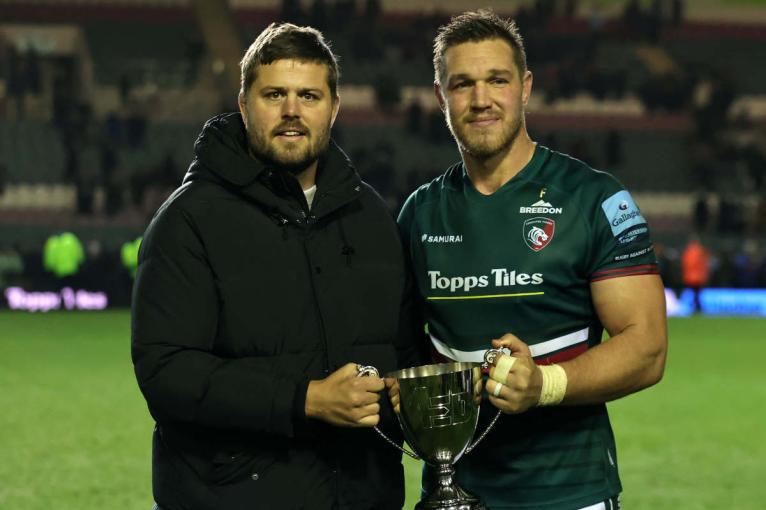Ed Slater’s voice had a colour in it I recognised. “I just wanna talk about rugby…” One I had appreciated before. We had worked for three years on the Official Gloucester Rugby Podcast, alongside Mark Atkinson, and I recognised genuine ‘Slater’ pleasure when I saw it.
Because you see, previously, I had experienced ‘Slater’ displeasure. In fact, as a man, he wasn’t difficult to read. He was pretty straightforward. If you did good things, he’d tell you. If they weren’t good, or to his appreciation, he’d also tell you. He is the type of person that is so straightforward, it is almost disconcerting. But my pitch had been met with an excited smile.
In truth, I had been nervous about speaking to him about it. Since his diagnosis with motor neurone disease last summer, I had spent a long time working out how I could help him. When I found out, I had sent him a message of thoughts and well wishes but had purposely left him alone. I watched, with everyone else, as the rugby world rallied around him: it was lovely. Fundraising totals were surpassed with ease and it seemed everyone was happy to help in some way. Yet at the back of my mind, I knew there was something else I could do.
One of my clearest rugby memories is a discussion I had with Paul Tupai when writing about his retirement. We sat in the Scrum Hall at Goldington Road, beneath all the pictures of Bedford teams from history, and he talked about his incredible (and long) career. But he said a phrase to me that stuck: “Rugby has given me far more than I have ever given it.” And it was to that phrase I gravitated when formulating the idea of the Rugby Inheritance Podcast.

However much you have played rugby, whoever you have represented, however great or minuscule your rugby CV, rugby gives you something. There is no denying it. Whether it is Old Fartesians 3rd XV or the British & Irish Lions, rugby’s gift is very precious. And I started to think about how we could examine this idea together: Ed and me. If you’ve ever spent any time with him, one thing you will know about Slater is he’s very perceptive. He comes up with great questions and possesses a healthy curiosity. I knew that together we could speak to some very interesting rugby people and get their take on a fascinating subject.
The unexpected benefit for Ed was getting to discuss rugby. It had become very much a secondary or even tertiary consideration to that of MND. He’d talked about MND a lot of late and even though he understood how important that was, he loved talking about sport.
Alex Goode and Freddie Burns took us back to mini rugby festivals and the smells and tastes of rugby as a youngster; Tom Wood described in detail his school matches against rival colleges
The other outcome we realised was one of positivity around rugby. Currently, the sport finds itself in a difficult position. From player behaviour, elitism, sexism, and racism, to financial mismanagement and brain injury, rugby’s stories seem, at least in our little bubble, overwhelmingly negative. Both of us loved rugby and wanted to bring the good stuff to the fore; remind people of what makes our sport so special; what brings us back to clubs, grounds, and certain people time and again. This podcast brought these ideas out by the bucketload. So many of the guests spoke so lucidly about their pre-professional rugby careers: Alex Goode and Freddie Burns took us back to mini rugby festivals and the smells and tastes of rugby as a youngster; Tom Wood described in detail his school matches and the competitions he had against rival colleges. Paul O’Connell took us into his first year at Munster, and how genuine legends of rugby treated him as a young player. Billy Twelvetrees spoke of filling cars with cornflakes, parking in sheep fields and winding up grisly forwards. The love for the game and its situations flowed.

But the honesty was stark, too. Chris Ashton spoke openly about his own father and the part he played in his upbringing, Greig Laidlaw talking about going to his first international was so relatable and Alex Goode’s candour around retirement was heartbreaking. To hear Matt Hampson talk about how the game left him paraplegic was utterly sobering and Jean de Villiers spoke so reflectively about his injuries and what they took away from his career.
These were the players’ stories, in their own words. Journeys, reflections, triumphs and disasters all shared with an openness that only an audience with Ed could bring out of them. I would ask the same questions of most of them, fearing I was being repetitive but the answers that came were so different. We went around the world: Japan, New Zealand, Samoa, South Africa, France and deepest, darkest Bath. But there were themes – older brothers, chips on your shoulder, ignoring the naysayers; every player revealed that perhaps one thing that marked them out was consistent persistence. In each episode, another nugget crept forward – on how cruel the sport can be, how serendipitous, how unfair, how glorious.
The Irish legend disclosed how Ed’s theories and ideas on the lineout were things he’d taken forward into the Ireland team that won the Six Nations. The look on Slater’s face was worth all the gold in the world
The unexpected treats often came without the microphone on. Once we stopped recording with Paul O’Connell, the Irish legend disclosed how Ed’s theories and ideas on the lineout, from a previous video podcast he’d watched with Geraint Thomas, were things he’d taken forward into the Ireland team that won the Six Nations. The look on Slater’s face was worth all the gold in the world. They then proceeded to talk for at least ten minutes on lineout minutiae using words I had scarcely heard before, let alone understood.
My favourite question – if rugby could speak, what would it say about you? – brought a wealth of insight and always led us neatly into the final section of the interview – we asked each guest to leave a gift behind for us on the podcast. We are running a live auction later this year to raise a few funds for the #4Ed cause and each episode contains details on the item of memorabilia, with each player describing what it means to them. There are some incredible pieces and I hope a huge volume of traffic can be sent the way of that auction when it goes live – it should be a great way to contribute to the fight against MND.

There are ten episodes live and ready to be listened to and we will record a handful more. We have managed to secure some extraordinary guests to finish off the series and we are also hopeful of organising a live final episode – details of which will be forthcoming.
It has been a pleasure to put together and the feedback we’ve received has been wonderful. So many people have described how each episode has spoken to them and allowed them to recognise, once again, what a special sport we have in rugby union.
The experience for me has been humbling, fascinating and wonderful. And although putting them together has taken a huge amount of time and effort, the experience has been worth far more.
Sam Roberts
But the best endorsement I have was from a woman who got in touch after having listened to every episode. And yet, she has never watched a game of rugby in her life. She listened to the first one because of her personal involvement with MND and became hooked. She would listen in the car on her way to work and then when she got to work, look up on the internet the players who she’d met via our podcast. She told me, rather amusingly, that “she didn’t think Chris Ashton would look like that…”.
The experience for me has been humbling, fascinating and wonderful. And although putting them together has taken a huge amount of time and effort, the experience has been worth far more. Each episode is most certainly a gift; I hope you can find some time to take them.
You can find all ten Rugby Inheritance episodes here.



Comments
Join free and tell us what you really think!
Sign up for free